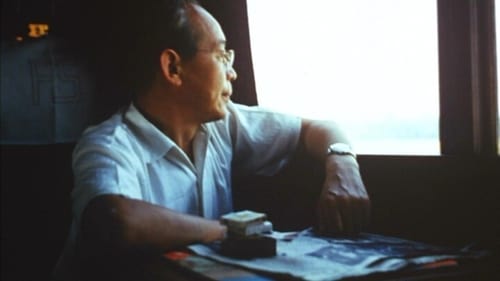
Kenji Mizoguchi: The Life of a Film Director (Aru eiga-kantoku no shogai) is a 1975 Japanese documentary film on the life and works of director Kenji Mizoguchi, directed by Kaneto Shindo (Onibaba). It runs 150 minutes and can be found on the second disc of the Region 1 Criterion Collection release of Ugetsu (1953).

Nomi-gumi, who plans to control Tama City, has begun to hurt Takase-gumi. Muraki, an executive, was entrusted with the destruction, but he was a brother of Takase-gumi's substitute, Tsukada. Muraki, who missed Tsukada and the old days at Tsukada's wife Shizue's shop, took the future of turning to the enemy painfully.

A film about the construction of the Kasumigaseki Building, the first high-rise building in Japan.

Eleventh film in the long-running series Daiei Studio's Woman Gambler with Kyoko Enami starring where she plays the woman gambler Ogin.
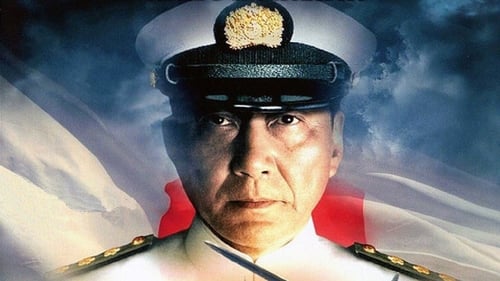
Nagano
As Japan joins in a political pact with Nazi Germany and fascist Italy, Admiral Isoroku Yamamoto is appointed supreme commander of the Japanese fleet. With Japan headed inexorably toward war, Yamamoto, despite his misgivings, believes the only possible victory lies in destroying the American fleet by surprise at Pearl Harbor. The attack succeeds, but fails to sink the American carrier fleet. Thus Yamamoto must lead the Japanese navy into war with ever-diminishing likelihood of success.

Shinsaku Ohwada
Gangsters are robbed of five hundred million yens.

Fujimura
Kitagawa is an engineer charged with construction of a gigantic tunnel through the Japan Alps for the transportation of equipment in the building of the massive Kurobe Dam. The tunnel crosses an earthquake fault and Kitagawa is beleaguered not only by cave-ins and flooding, but by strife between management and the workers's union. Adding to Kitagawa's stress is the knowledge that as his attention is pulled inexorably toward the tunnel construction, his youngest daughter is dying from leukemia.

The year is 1926. It has been three years since the Great Kanto earthquake hit Tokyo. Everything is being rebuilt from the ground up. Odera crime syndicate saw this as an opportunity to expand its territory. The Odera boss arranges marriage between his daughter Orin (Ruriko Asaoka) and the son of notorious Gyotoku clan, but Orin’s heart belonged to Shinjiro (Yujiro Ishihara), a member of her father’s clan.

Story of loyal sailors giving their lives for their country as human torpedoes towards the end of the War.
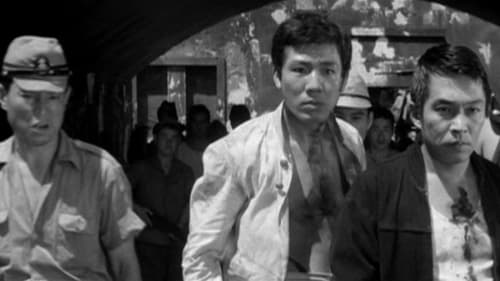
The 11th and final film in the Gang series. Most of the films had different directors and cast, and were only connected by the title and Toei's marketing department. Unlike the early entries, which were jazzy capers, this final entry is a prototype jitsuroku yakuza film. Just back from the war, Noboru Ando leads a gang of war vets turned gangster in the US occupied streets of Tokyo. They get into a conflict with a Chinese gang as well as the military police. Tetsuro Tamba appears as a police chief trying to bring peace to the streets; 1st wave pinky violence star Masumi Tachibana is a girl grieving his dead gangster father.

Daisaku Ôwada
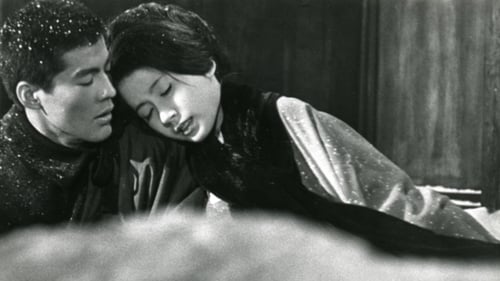
Suzuko, a woman in her twenties who has a brother with political problems (due to communist reprisals), lives for over five years in a love affair with Tate who's a young lieutenant in the Army, ultimately becoming a right-wing fundamentalist revolutionary. She marries another man, one totally dedicated to the rigorous practices of Noh theatre, in an arranged marriage, but the bond that connects her with Tate is too strong.
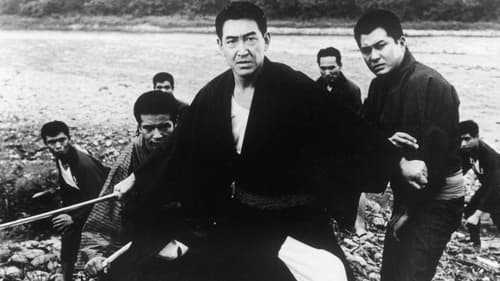
Tachibana

Madwoman's father
Aspiring to an easy job as personal physician to a wealthy family, Noboru Yasumoto is disappointed when his first post after medical school takes him to a small country clinic under the gruff doctor Red Beard. Yasumoto rebels in numerous ways, but Red Beard proves a wise and patient teacher. He gradually introduces his student to the unglamorous side of the profession, ultimately assigning him to care for a prostitute rescued from a local brothel.
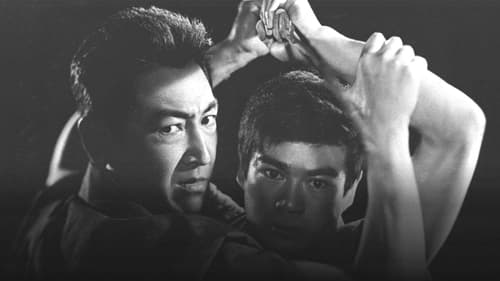
Genichiro Matsuhashi
An early ninkyo film from before the genre had truly established its form. Koji Tsuruta plays an honourable outlaw who saves an older man from an ambush. It turns out the man is the head of a hard working clan appointed to a railway construction project. A ruthless yakuza gang is also trying to get their share of the project and attempts to sabotage the work. After the old man dies, his son (Sonny Chiba) and daughter (Junko Fuji) try to complete the project. Tsuruta joins them while also falling in love with a local woman working in a bar (after all, Tsuruta always was more of a lover than his stoic colleague Takakura).
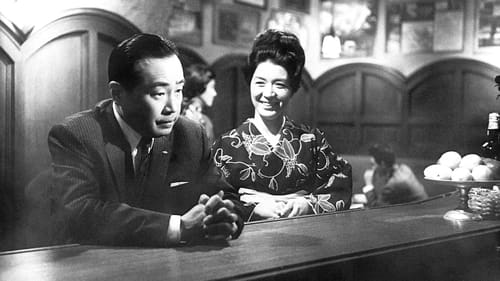
Matsumoto
The executive director of the «Chuo Shoji» company, Hidaka Shiro, is called a "demon of work", but the hostess of the bar calls him "the loneliest person in Japan." He lost his wife ten years ago and has been living as a widower ever since. He plotted to marry off his 22-year-old daughter Keiko for political gain, but Keiko is in love with Okuda, who is her father's subordinate. A story full of sadness and joy, depicting a man gripped by different thoughts, as an employee of the company and a father.

Murata, the landlord
After her mother runs away from home, Tomoko is raised to be a geisha. One day Tomoko meets her mother in a red-light district in Tokyo and her life deeply gets in trouble.
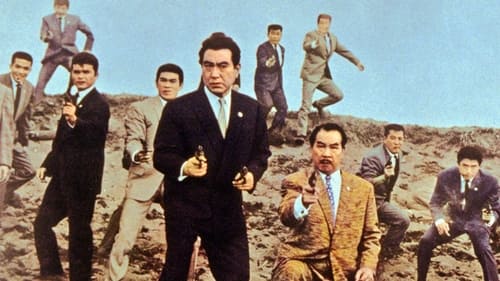
Yanagisawa
A modern gang version of Chushingura, chronicling almost scene for scene the Brave 47 Ronin story, transposed from the Genroku Period to the Showa Era.
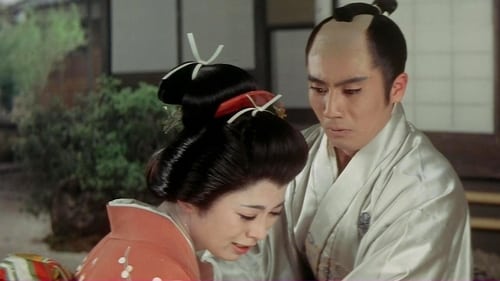
Matsudaira Izu no kami
The shogun's vassal Harima Aoyama and a chamber maid are in love with each other, but they cannot be together due to a difference of their status. Soon, an offer of marriage is brought to Harima. Trying to test his love, Okiku breaks one of the plates of the family treasure of the Aoyama family, but Harima doesn't notice. However, someone surrounding her witnesses the moment Okiku breaks the plate on purpose.
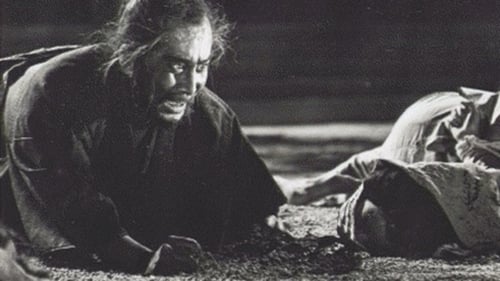
Gonnosuke Shizuta
After a salary-man's fiancée attempts suicide, he recounts his gruesome family history which saw generations of his ancestors suffer and sacrifice themselves for the sake of their cruel lords.

Ishimoto
Van Hekken, an old gangster, arrives in Tokyo to direct a bank hold-up in order to get a very valuable diamond.

The Purple-Hooded Man, Japan's version of Robin Hood, tries to uncover a corruption scandal in Edo era Japan.

Sohei Mizuki
In this Japanese drama, a dry goods merchant's daughter is surprised to discover that she has a twin sister. In rural Japan it was thought that twins bring bad luck, so the sister was abandoned at birth. Later her parents tell her that her sister was kidnapped. The woman doesn't believe this and when she eventually meets her twin, both women are involved in love affairs. The merchant's daughter is seeing an educated fellow. Trouble ensues when she begins suspecting that he may be more interested in her sister.
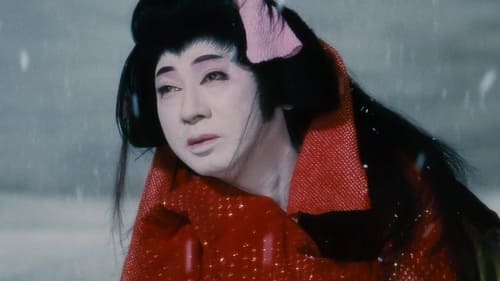
Hiromi-ya
While performing in a touring kabuki troupe, leading female impersonator Yukinojo comes across the three men who drove his parents to suicide twenty years earlier, and plans his revenge, firstly by seducing the daughter of one of them, secondly by ruining them...
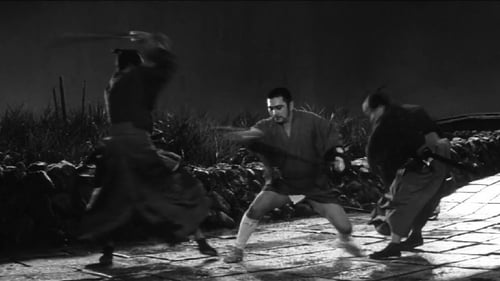
Sukegoro Hanoka
Returning to the village where a year before he had killed Hirate, a much-admired opponent, Zatoichi encounters another swordsman and former rival in love.

In this tale of bravery and honor among the roving gamblers of old Japan, the heroic Jirocho, Boss of the Tokaido is called upon to help a young yakuza named Eijiro after he runs afoul of the new samurai officials who have taken over his hometown. Expertly portrayed by Kitaoji Kinya (son of the all-time great star Ichikawa Utaemon), this young man stands up for the townspeople and puts his life on the line. Jirocho, played by superstar Nakamura Kinnosuke, a boss known for his honor and valor soon finds himself involved in the feud which will only end in a brutal showdown.

A touching drama about a love triangle between a young architect, Koroku, and two women, Ranko and Teruko. Ranko comes from a wealthy family and is offering to repay Koroku’s family debts in exchange for marriage, but Koroku is in love with his landlord’s daughter, Teruko. Things are further complicated when the wicked Tsugawa takes interest in both women, for his own marriage.

A man challenges a territorial fight between gangs.

Ooinokami Matsudaira
The son of an executioner and the assassin he loved yet murdered learns of his origins, leaving his foster parents to avenge his mother's death.

Yasugoro
When a corrupt magistrate rapes Oshima, Masa (Raizō Ichikawa) avenges her by killing the officer, becoming thereby a fugitive, haunted and grief-stricken by the fact that Oshima committed suicide. Going underground in the gambling world, perpetually hiding from the law, Masa eventually meets a young woman named Onaka, who looks exactly like Oshima. Tales having two look-alike heroines are a commonplace in Japanese period films, a plot affectation inherited from the kabuki theater. Based on a novel by Shin Hasegawa, Nakayama shichiri was already twice filmed in 1930, one version directed by Namio Ochiai, and from which less than 40 minutes survive, the other directed by Kyotaro Namiki. Both are silent films, preserved by the Makino film institute.

A court fortune-teller loses his mind after a conspiracy leads to the death of his lover. Hope appears to be on the horizon after he becomes romantically involved with his dead lover’s twin sister, but more complications arise thanks to a chance encounter with a clan of shape-shifters.
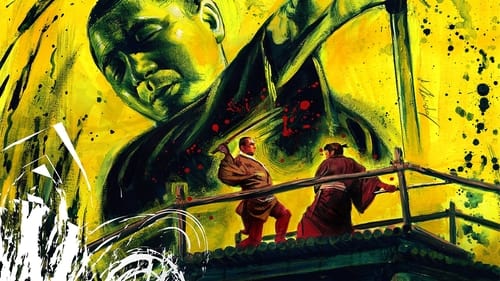
Sukegorô
The adventures of a blind, gambling masseur and master swordsman. Zatoichi targets a yakuza-controlled village, because war with a neighbouring town's smaller gang is brewing.

Film about the 2-26 Incident.
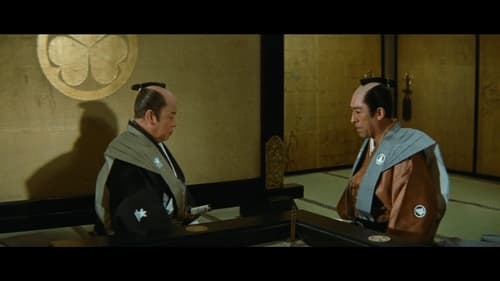
As Japan’s Tokugawa shogunate nears the end of its rule, Edo North Magistrate Toyama no Kinsan is called upon to judge the most difficult case of his career. In a masterfully woven tale, he has to face the truth about his estranged father’s possible involvement in a nefarious plot to take over rule of the Hizen Shimabara clan by assassinating the rightful lord, his son, and install one of Shogun Ienari’s offspring as daimyo.
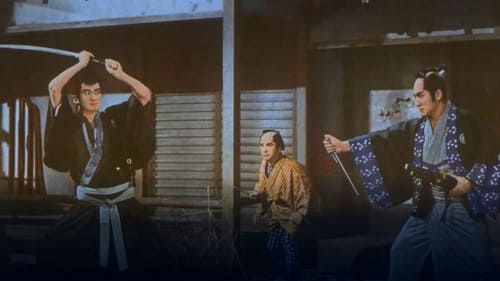
A kabuki actor is assassinated during a New Year celebration show, in front of everyone, fortunately the great detective Umon is among the audience. Along with his quirky assistant they set on the trail of revenge killing. Revenge for what? Who and where is the killer? And what does a treasure and swastika spider tattoos have to do with the case?

Adventures of famous yakuza boss Jirocho and his disciples who settle in Kofu.

A boss of underworld helps the police crush an evil gang.
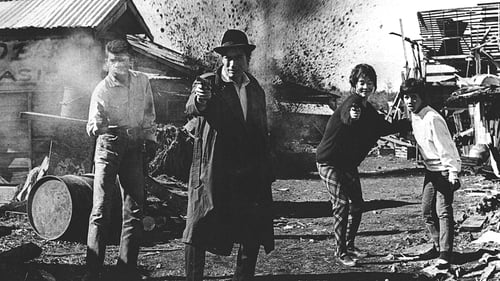
After a successful robbery the culprits, from very different backgrounds, at once turn on each other.

Based on the mystery novel of the same name by Seichō Matsumoto.

Abbot Tenchu
A story of an orphan boy who wanted the love of parents so badly, another orphan sincerely pitied him to the point he gives his secret birthright as an illegitimate son to a Shogun as a "gift of hope" to the sad boy. As the orphan boy grew up, his loving heart became bitter and he saw the opportunity to take advantage of this birthright with the help of a man who wanted to use this orphan's desire to be loved, for seizing power in the shogunate by using the imposter. Many obstacles to hurdle along the way of deception, however, will they succeed or will he be exposed?
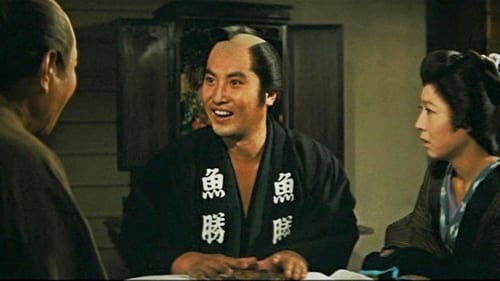
Katsujiro the fisherman overcomes his laziness when he learns of his younger sister Okiku’s unfortunate fate.
Nakamura Kinnosuke stars in two roles (Katsugoro and Aoyama Harima) in this film about the tragic nature of society in the late Edo period.

Japanese comedy film.
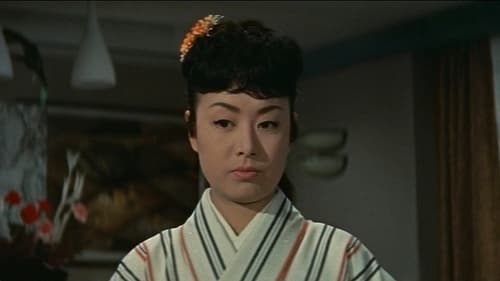
Hibari Misora plays Yoshiko, the popular daughter of a fish market owner. After discovering that she was adopted, she sets out to help her biological father who has fallen victim to an evil plot orchestrated by those who would take over his successful business.

Japanese comedy film.
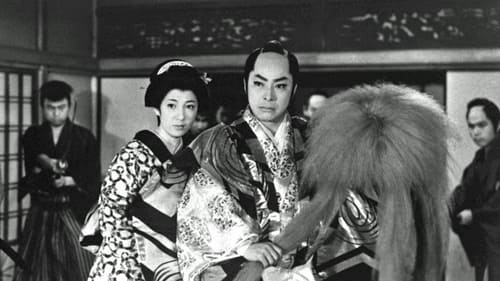
The second work in the series "Cases of An Actor in Disguise" starring Kokichi Takada, based on the original work of Tatsuro Jinde. Popular ronin actor Kasumi Ippei intervenes in a planned robbery of the mint, where gold coins are minted for the Shogunate.
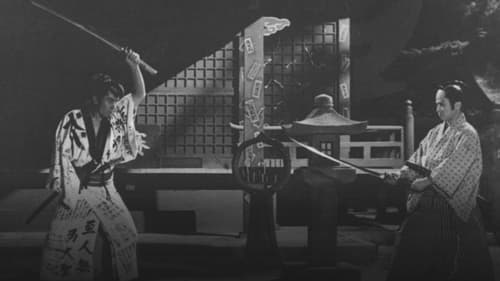
Tange Sazen interferes with an evil plot against the Iga Yagyu family.

An early Okamoto yakuza film, though it's not in the Underworld series (along with The Last Gunfight and The Big Boss) despite being alternatively known as "Death of the Boss." While Okamoto did not write this film and took on the project because he was assigned and "just doing [his] job" according to an interview with Chris Desjardins in Outlaw Masters of Japanese Film, he did express a general excitement about working in action cinema (which shows through in this film's energy.)
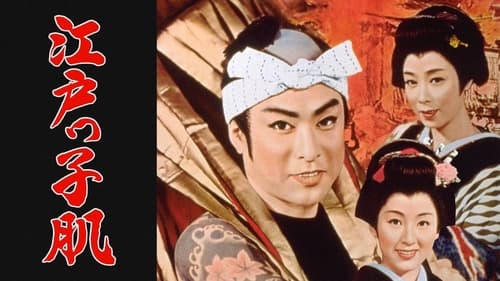
Action and adventure abound in this story of friendship between two rival firefighters, Kichigoro and Jirokichi in old Japan. When Mukai Sadayu, the vassal of Kaga Clan's accounting officer, Shinagawa Daihachi demands that Omon serve him tea in his mansion and she refuses, the clan's samurai abduct her setting in motion a series of events that will bring the two firefighters into a world of danger and excitement. Jirokichi, leader of the Edo firefighting team "Ha-gumi" must first rescue Omon from the clutches of the vile Kaga Clan's retainers.

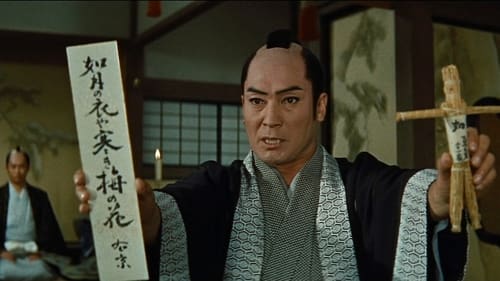
The serial killing of a samurai each night by strangulation at various temples confounds investigators and brings a chill to the residents of Edo. With the capital on edge, master crimefighter Kondo Umon is brought in to try and solve the case. His illustrious career aside, Umon must risk his own life, time and time again in order to bring the culprit to justice. This mystery will keep you guessing until the exciting climax. Umon has a flair for the dramatic and will hopefully solve the case before more innocent victims have their lives claimed!

Uncle
Story of a woman, Saiko, who divorces her doctor husband when she is given a baby by a stranger who claims it is the husband's child. Saiko embarks on an affair with her cousin's husband, but a crisis threatens when she discovers that her ex-husband is about to remarry.

A comedy about a free-spirited man Shosuke, whose life is turned upside down when he is ordered to serve the clan lord.
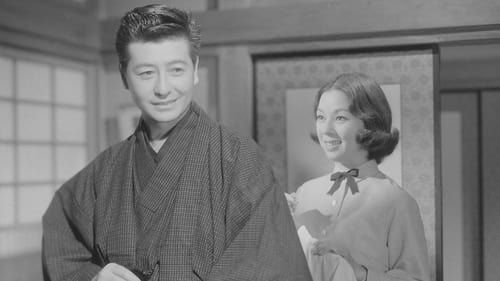
Ko Tanomura, who was ordered to study abroad in the United States for two years as a youth executive at Haneda Airport and a royal industry, was looking for the appearance of Sako Ozegawa from a large number of see-offs. --Kou's father, Cheongju, is an authority on religious studies, and Orie is his third wife. Eiko, who is a distant relative of Orie, came to Tokyo to care for her sick. Two months ago, Ko, who first met Eiko, was deeply moved...

A poignant story about a young couple, Setsu and Chozo, who are torn apart to save Setsu's father's restaurant.
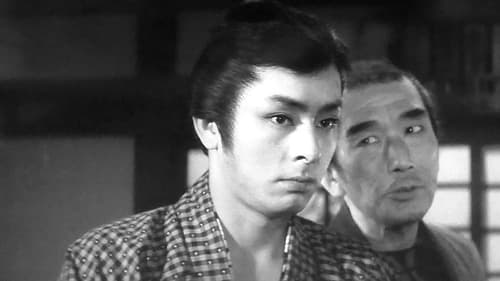
A dashing edition with fights , love, and laughter, in which the sorrows and joys of the guiltless world are colored by the guiltless travel crow, Ayame 's Gantaro, with the turbulent and exciting Wakizashi Hitoshi .

Sheriff Goro goes undercover to investigate drug smugglers.

One of the earliest of subeban/ girl boss type eiga

Zeniya Gohei
Kinnosuke of Toyama sets out on a private mission to clear his father’s name for a crime he did not commit.

Young geisha Kohana scrambles to realize her dream of bringing back her grandmother’s restaurant business.

Tsunokichi and Ken face off against a rival yakuza in Kyushu.

Oda Nobunaga (1534–1582) was a major daimyo during the Warring State period of Japanese history. He was the second son of Oda Nobuhide, a deputy military governor with land holdings in Owari province. Nobunaga lived a life of continuous military conquest, eventually conquering a third of Japanese daimyo before his death in 1582. Telling the story of his rise to prominence as he leads an army of 4,000 men against the 40,000 troops of Lord Imagawa Yoshimoto to prevent the arrogant daimyo from crushing the Oda clan and taking control of the entire nation. From a newly restored anamorpic widescreen print, this is the ultimate warlord movie.

Ogosho
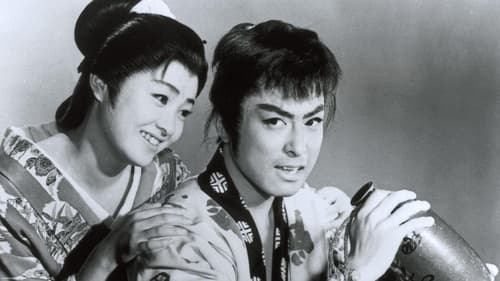
Yoshiyasu Yanagisawa
A man is brutally murdered and his famed shamisen (a three-stringed musical instrument) called the "Yamabiko" stolen. Prince Kogenta swears to avenge his father-in-law's death and retrieve the family heirloom.

Featuring some of the finest swordsmen ever to grace the silver screen, this Toei classic tells the story of a battle between the evil sword style called ”Otonashi” (The Silent Form) and the proper way of swordsmanship as promoted by such historical stalwarts as Shimada Toranosuke, and the mysterious Honda Sakon, who face off against a group masquerading as the lord of Mito and his traveling bodyguards Suke-san and Kaku-san. The plot thickens as their leader unveils his secret plan to disrupt the stability of the nation. It is all in the name of swordsmanship, and as the title implies there are no stronger swordsmen!
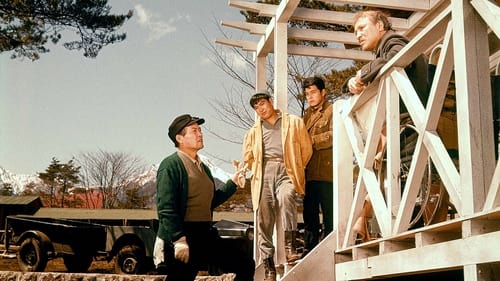
Kensaku Muro and his father manage a farm in Sakudaira at the foot of the Yatsugatake Mountains. One day Kensuke saves a suicidal woman, Fukiko Uzu, who jumps into a waterfall. Having injured his eyes in the process, he is brought to Tokyo for medical treatment. In Tokyo, Kensaku visits his mother Kaneko who left her son years ago. She now owns an exclusive club and has a son, Isao, with the president of Kobe Concern. Isao plots to steal Kensuke's farm as part of a land development scheme with Fukiko's husband. Without knowing they are blood related, their conflict over the farm intensifies.

Shochiku's commemorative 3000th film production; a suspenseful period drama.
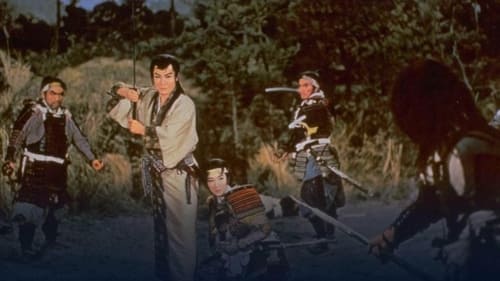
From an original story by Shibata Renzaburo, the novelist who created such classics as: the "Nemuri Kyoshiro" series (Son of the Black Mass), "Destiny’s Son" etc. comes the complex story exploring the mystery behind why Ino Morimasa betrayed his sworn brother Ishida Mitsunari, thus leading to the defeat of the Toyotomi at the Battle of Sekigahara. Starring Nakamura Kinnosuke in one of the strongest performances of his career as Ino's estranged son seeking justice. Originally known as "The Forbidden Castle".

An action-packed, dramatic gangster film.

Saotome, a sword master and guard of the Shogunate, pursues the mystery of a deadly aerial weapon that is responsible for the multiple deaths in town.
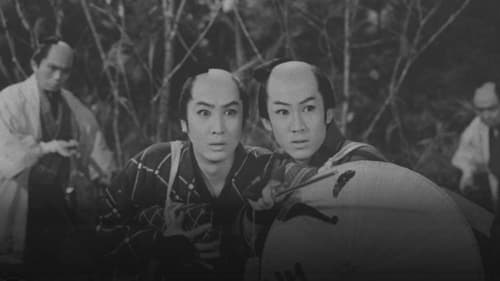
Two thrill seeking young lords sneak out of their castles and travel under the disguise of townsmen.

Four thousand gold coins were stolen from the vault of Nijo Castle in Kyoto, which were collected as a tax to the shogun. The guard of Nijo castle Asaka Keinosuke, disguised as a komuso monk, proceeds to investigate the theft, traces of thieves lead to Edo, where Asaka goes.

Heikichiro Hashimoto

Sinza who is secretly the well known "Sea Glow Burglar", gives to the poor the money he takes from the bad lords and greedy merchants, who live just to exploit the poor for their small coins. On his travel he meets a man and his little girl Onatsu. The man gets ambushed and killed in front of his daughter, so Sinza promises the man he will take his daughter safely to their destination, so the little girl is now his responsibility. The kind, non-violent Sinza now finds himself entangled in something far bigger than he expected.

Kunisada Chuji is a common folk hero who looks out for poor people in the country who are at the mercy of corrupt officials. Intent on fulfilling a dying wish from one of his henchmen, Asataro, to find a decent home for his young nephew, Chuji descends from his hide-out in the mountain, and heads to the city in spite of numerous dangers that await him there.
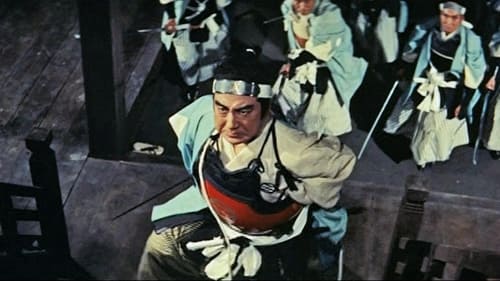
Fukubara Echigo
The Shinsengumi is a special unit of ronin commissioned by the Tokugawa shogunate to counter anti-shogunate activities in Kyoto. A sinister plot to overthrow the shogun is set in motion and Kondo Isami and his fellow samurai must answer the call and expose those behind it.

As a result of a superstitious belief that twins bring bad luck to the family, newborn twin princesses are separated. Yukihime, who was sent away to be raised by a yakuza family in Edo, returns home after many years to settle an old score.

Two guardians of the Nijo Castle, Shioya and Kamazawa, discover a map leading to a secret passage to Edo Castle. Instead of reporting their find to local authorities, they decide to blackmail the lords who created the forbidden passage. To prove their crime, Magistrate Toyama Kinshiro launches a private undercover investigation.

Following a yearlong attendance upon his shogun in Edo, samurai Hikokuro makes a long-awaited return to his home and doting wife, Dane. Initially greeted by the effusive welcome of his family, spiteful whispers also reach his ear about an adulterous affair carried on, in his long absence, between his wife and a famous drummer. With Hikokuro’s honor imperiled by rumor, his family insists on a formal investigation into the veracity of the gossip. Through the combined testimony of many witnesses, a tale unwinds around the visits of a traveling musician hired to tutor the family heir, the spurned attentions of the man who started the rumor, and the ultimate truth behind the accusations. The conclusion of events prove as much an indictment of bushidō as it is of the reluctant parties involved. Adapted from a 1706 play by Chikamatsu Monzaemon and based on a true case.

Banshu-Ya Jubei
Thanks to a secret message hidden on the two sacred swords Kaen and Suien, the samurai Genji Kurô (Nakamura Kinnosuke) found the hidden treasure of Lord Yoshitsune. When he gives a piece of the treasure to a couple of poor but honest people so they can pay their debts, it attracts the unwanted attention of several dishonest people, such as pirates, greedy merchants and rebels. While the government is fighting a battle for power against rebels and royalists, all want the treasure by any means possible.

Teppei Murata
Aiko, a bar hostess, falls for the son of a company president who also keeps a mistress, and whose family disapproves of his relationship with the bar hostess.

In 1905, Japan was seriously threatened in the Russo-Japanese War. Japan determined a decisive attack on Russia to end the war. A reconnaissance troop was organized to penetrate into the supreme headquarter of Russia in Tieling Mountain of China to find out the enemy's situation...

Toyama Kinshiro, a commissioner from northern Edo, goes undercover to unravel the mystery behind a series of murders. Kinshiro, played by Kataoka Chiezo, is most famous for the cherry blossom tattoos on his shoulder which he reveals at the moment of judgement.

Ronin Sasaki Kojiro pursues his ultimate goal of becoming a master swordsman. Along the way he encounters another great swordsman, Miyamoto Musashi.

Fujiyoshi
Chuji Kunisada runs into strange adventures which tests his skill as a samurai as he untangles intrigue and murder against the backdrop of the majestic Mount Akagi.

Period drama based on the novel by Saisei Murō.
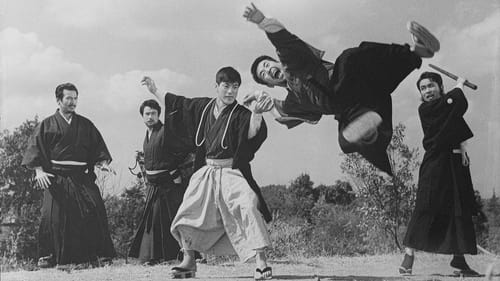
The picture tells of a tremendous conflict between ju-jitsu, an aggressive art practiced by vicious hoodlums led by Takamatsu, and judo, which is used only for self-defense and championed by Sugawara. All of which, comes to a mighty match between Sugawara and Takamatsu. It's loaded with dynamite, so to speak, and lasts five minutes on the screen, Sugawara, wins. Takamatsu, a poor loser, and his four ju-jitsu hoodlum companions later ambush Sugawara in the woods. This turns out to be a mortal combat. You'd like to learn the outcome, wouldn't you?

This 1956 adaptation of the novel with the same title puts more focus on the characters and their interactions than the previous version.

Shinpachiro Kasahara
Ichikawa's 1956 adaptation of Nihonbashi was the first to take the work of Kyoka Izumi— until then regarded as a writer of common tragic melodramas—and re-evaluate it as a tanbi-ha work of decadence, aestheticism, and intrigue. Ichikawa's film presents the tragic plot of the young geisha who is unable to enact her love for a man publicly in any way other than a histrionic story of torment, a heart-rending tale of lovers being crushed by fate. Instead, Ichikawa shows the contest of wills that transpires as two geisha, Oko and Kiyoha fight for the top spot in Nihonbashi, the pinnacle of the Tokyo geisha world. Nihonbashi is an elegant, if steely, exposition of manners. The young doctor, Shinzo Katsuragi, is the object of affection for both women, but appears to be more the choice reward for the plotting and thieving of these two early modern superwomen, than a lover they swoon over.


Detective Tarao goes undercover to battle an evil gun smuggling business.
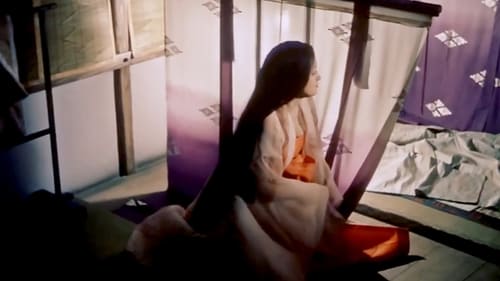
Emperor Shirakawa
Special Forces commander Captain Tadamori returns to Kyoto after successfully defeating the uprising of pirates in the western sea of Japan. But because the high courtiers dislike career soldiers gaining power and influence, they ignore the will of ex-Emperor Toba and refuse to reward the captain. Reward recommender Lord Tokinobu is punished, and the captain sends his son Kiyomori to the Lord's residence, where he falls in love with Tokiko, the Lord's daughter. Meanwhile, Kiyomori finds out that he is possibly the ex-Emperor's son... Written by L.H. Wong
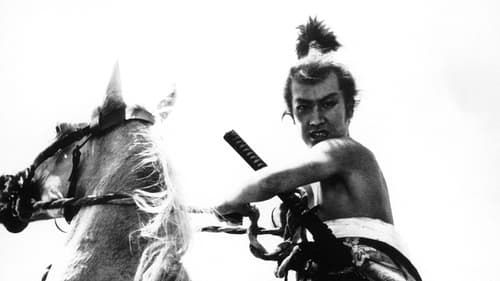
A dynamic story depicting the rise to power of Oda Nobunaga. The story of a young man on the battlefields of the Sengoku era, who possessed character and courage, and who became a great commander and ruler, while some called him a great dictator. A film adaptation of the novel by Sohachi Yamaoka.

Shunsuke's father
A young widow, made world weary by her abusive, neglectful husband, finds herself in a minor scandal when she's seen with her intense, no-nonsense childhood sweetheart.

Hyogoro Onishi
Following the tragic death of his father, a young boy's family trains his horse to compete in the local derby.

A boy falls in love with a girl. Neither of them know that she's to be sold to a brothel.

A Japanese drama featuring the one-eyed, one-armed swordsman

Based on the popular story of the tragic lovers, Onatsu and Seijuro.

Machiko and Haruki’s drama continues. Machiko is not allowed to see Haruki. They finally meet again, but Haruki departs to Europe.

Machiko and Haruki’s drama continues. Two meet again in Hokkaido only to be separated again.
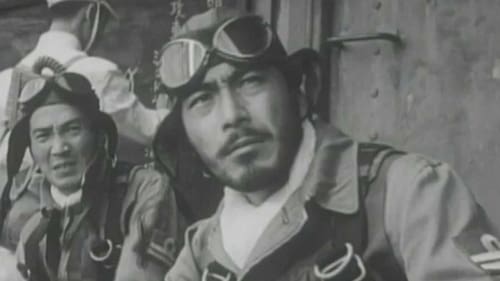
Premier Admiral Mitsumasa Yonai
Admiral Isoroku Yamamoto, a brilliant tactician, is a loyal subject of the emperor, despite his grave misgivings about leading Japan's navy into war with the United States. He opposes the attack on Pearl Harbor, but, overruled, he leads his forces to the best of his ability.

Machiko Ujiie and Haruki Atomiya first meet and fall in love on Ginza’s Sukiyabashi Bridge during the Great Tokyo Air Raid in March 1945. Machiko and Haruki pledge to meet again at the bridge in six months but part without asking each other’s names.
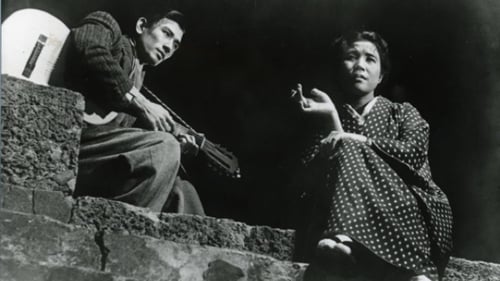
Iwami
At the close of the war in Japan, a widowed mother makes every possible sacrifice to bring up her ungrateful son and daughter who are unimpressed with their poor standard of living at home. They gradually reject her in search of the material comforts that working as a maid cannot provide. The mother's despair becomes interminable.

Ginko, a poor cobbler's daughter, becomes a geisha to support her family. She passes from one geisha house to the next, trying to find love and hope in the process. No matter how hard she tries, she just can't escape her sad fate.
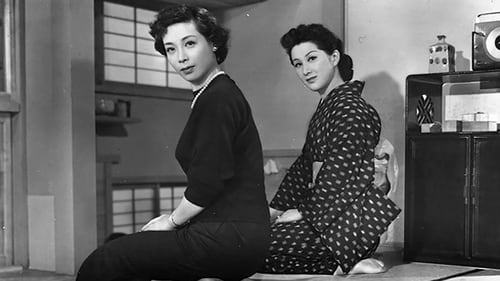
Yamauchi
Takeo, a capricious wife from Tokyo high society, is bored by her dull husband, a quiet and reliable company executive raised in the country. After a crisis, she understands better his true value. A parallel sub-plot shows her niece rebelling against the tradition of arranged marriages.

A gallant swordsman takes on the forces of evil with the help of his trusty friends.

A family of Kyoto textile workers struggles after tragedy.

Having completed the first year at his new medical practice, a doctor plans to relax on his day off. However, it is not to be: on this hectic day a man just back from the war front visits the doctor with a medical emergency, followed by a woman who claims to have been molested. Then a yakuza arrives to ask the doctor to cut his finger off...

After mastering swordsmanship at the dojo of Chiba Shusaku, and unable to serve a clan due to his illness, Hirate Miki becomes a ronin who winds up as bodyguard to Shigezo of Sasagawa leading up to an epic battle.

A young botanical researcher moves to the highlands to collect plants for research, and falls in love with a nurse there.

Eitaro
Shinnosuke is introduced to Shizu as a prospective marriage partner, but he falls in love with her widowed sister Oyu. Convention forbids Oyu to marry because she has to raise her son as the head of her husband's family. Oyu convinces Shinnosuke and Shizu to marry so that she can remain close to Shinnosuke.
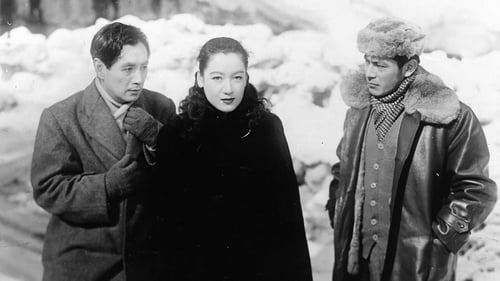
Tohata
Kameda, who has been in an asylum on Okinawa, travels to Hokkaido. There he becomes involved with two women, Taeko and Ayako. Taeko comes to love Kameda, but is loved in turn by Akama. When Akama realizes that he will never have Taeko, his thoughts turn to murder, and great tragedy ensues.
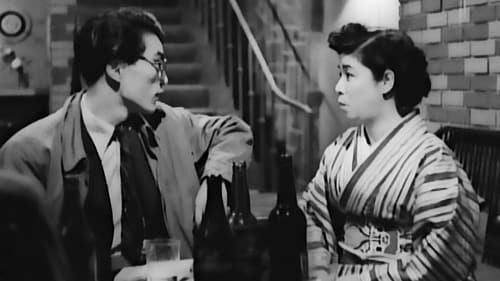
Seikichi Kineya
A luckless geisha struggles to make a living for herself and her young son.

Serizawa

kikyou - The Return

Sasagawa Shigezô
Jidai-geki by Kiyoshi Saeki
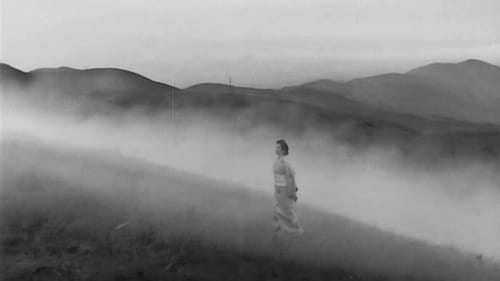
Naoyuki Shinano
Hamako has just started working for her personal hero, Madame Yuki. Her romanticized view of the Madame is broken immediately, though, as she is introduced with a ever-growing list of the Madame’s personal problems.

Police detective Heiji is assigned to catch the masked Maboroshi gang of robbers who have terrorized all of Edo leaving few clues as to who their leader is.

Kiyohide
Kiyone Sakurai, an apprentice swordmaker makes a sword for his guardian, Kozaemon Onoda. Onoda breaks the sword while defending his lord which eventually leads to his death at the hands of Naito, when Naito demands to marry his daughter Sasae. Sasae vows to avenge her father's death and pleads for Kiyone Sakurai to make a special sword for her. So Kiyone and his fellow swordmaker Kiyotsugu go to the master swordsmith Kiyohide Yamatomori to learn their craft and forge the sword. - Will Gilbert

Based on Kōda Rohan's novella The Five-Storied Pagoda.

Jirozou
A self-absorbed young actor humiliates an elderly Noh performer, who then commits suicide. His act of cruelty compels his father to disown him, leading the once promising actor to a life on the streets. But his desire to win back the respect of his father and the affection of the dead actor's daughter pushes him toward a more noble existence. Naruse employed a delicately structured mise-en-scene in this family melodrama, which evokes the work of Josef von Sternberg.





















































































